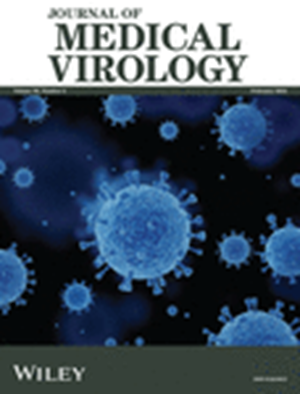Globally ≤ 4 billion of the population are at potential risk of contracting dengue virus (DENV) infection. Seasonal outbreaks of dengue are frequently reported causing a high healthcare burden. Undiagnosed DENV can lead to severe morbidity and mortality. Early diagnosis of DENV relies on molecular methods, which are impractical in resource-constrained settings (RCSs). Dengue can be caused by any of the four distinct DENV serotypes. Therefore, a simple method for rapid diagnosis of Pan-DENV serotypes is of utmost importance at RCSs. A fluorescence detection platform for Pan-DENV using RT-RPA and CRISPR/Cas12a was developed targeting nonstructural 1 (NS1) gene for DENV-1, 2, and 3, and envelope (E) gene for DENV-2. Further, crRNA specific to DENV serotypes were designed to facilitate CRISPR/Cas12a detection. Analytical sensitivity was determined using synthetic RNA and DENV serotypes genome. Clinical validation of the assay was performed using RNA extracted from AES/AFI clinical samples. The developed CRISPR/Cas12a-based detection platform can detect all four serotypes of DENV viz 1−4 in a single pot using fluorescence detection. This assay showed the limit of detection ≥ 781 zg reaction−1, ≥ 1.81 ag reaction−1, ≥ 62.5 fg reaction−1, and ≥ 2.5 pg reaction−1 for synthetic DENV-1, DENV-2, DENV-3, and DENV-4 template, respectively. Our assay demonstrated the analytic sensitivity of ≥ 10 ng reaction−1 for DENV-1 and DENV-4, and ≥ 0.5 ng reaction−1 for DENV-3 and DENV-4 genomes. This assay showed no cross-reactivity with other related etiologies tested causing AFI/AES. With 76 clinical samples (DENV PCR positive = 16, DENV PCR negative = 60), the assay demonstrated 93.7% sensitivity and 100% specificity with an overall accuracy of 98.7% for detection of the Pan-DENV serotypes. Our assay displayed comparable results to that of RT-PCR. The ease of interpretation and rapid detection of the Pan-DENV, represents the potential of the developed assay as an ideal point-of-care test. This assay upon field-deployment could help in reducing healthcare burden, provide differential diagnosis and support initiating early and prompt treatment to patients at RCS.


